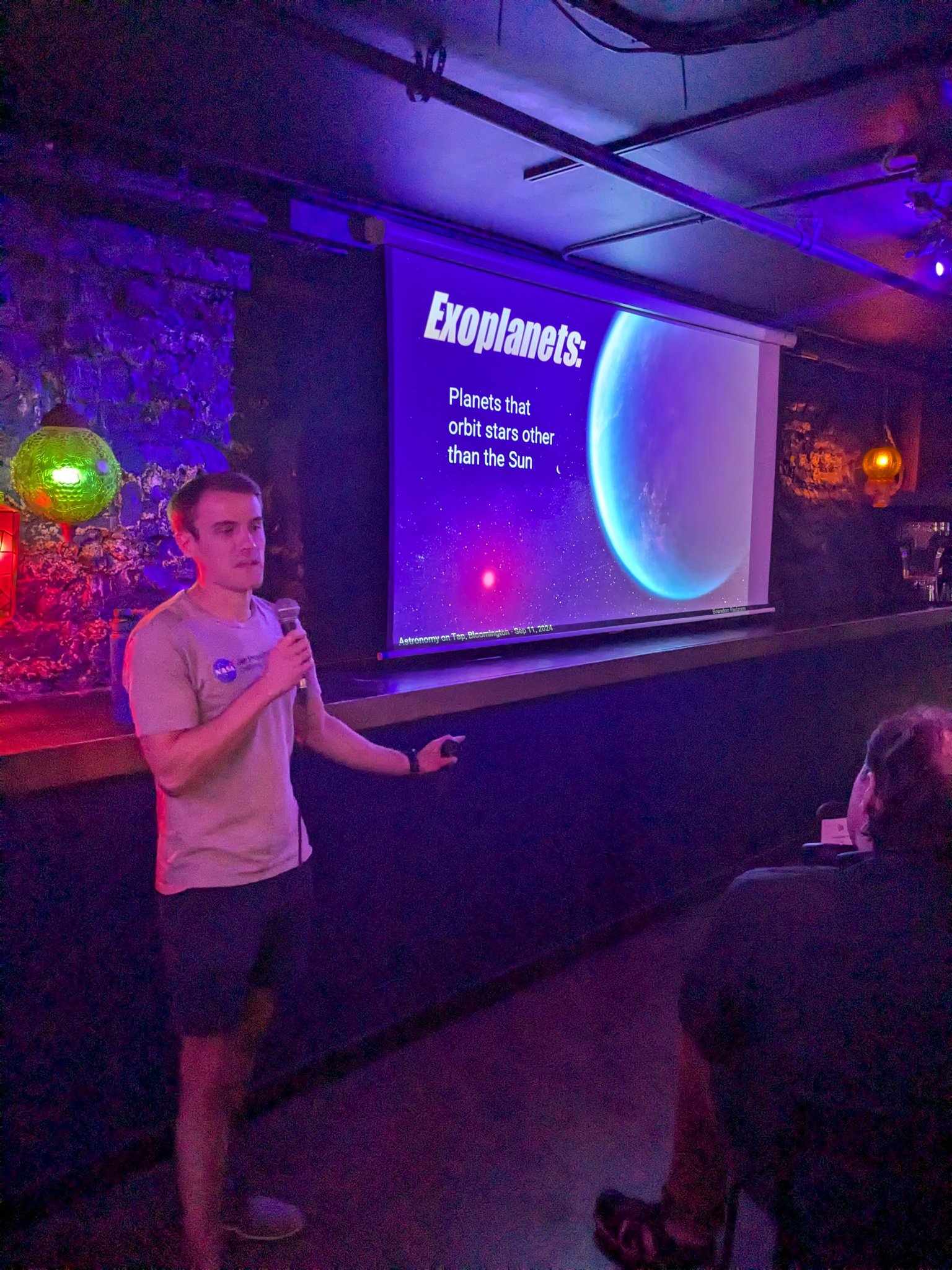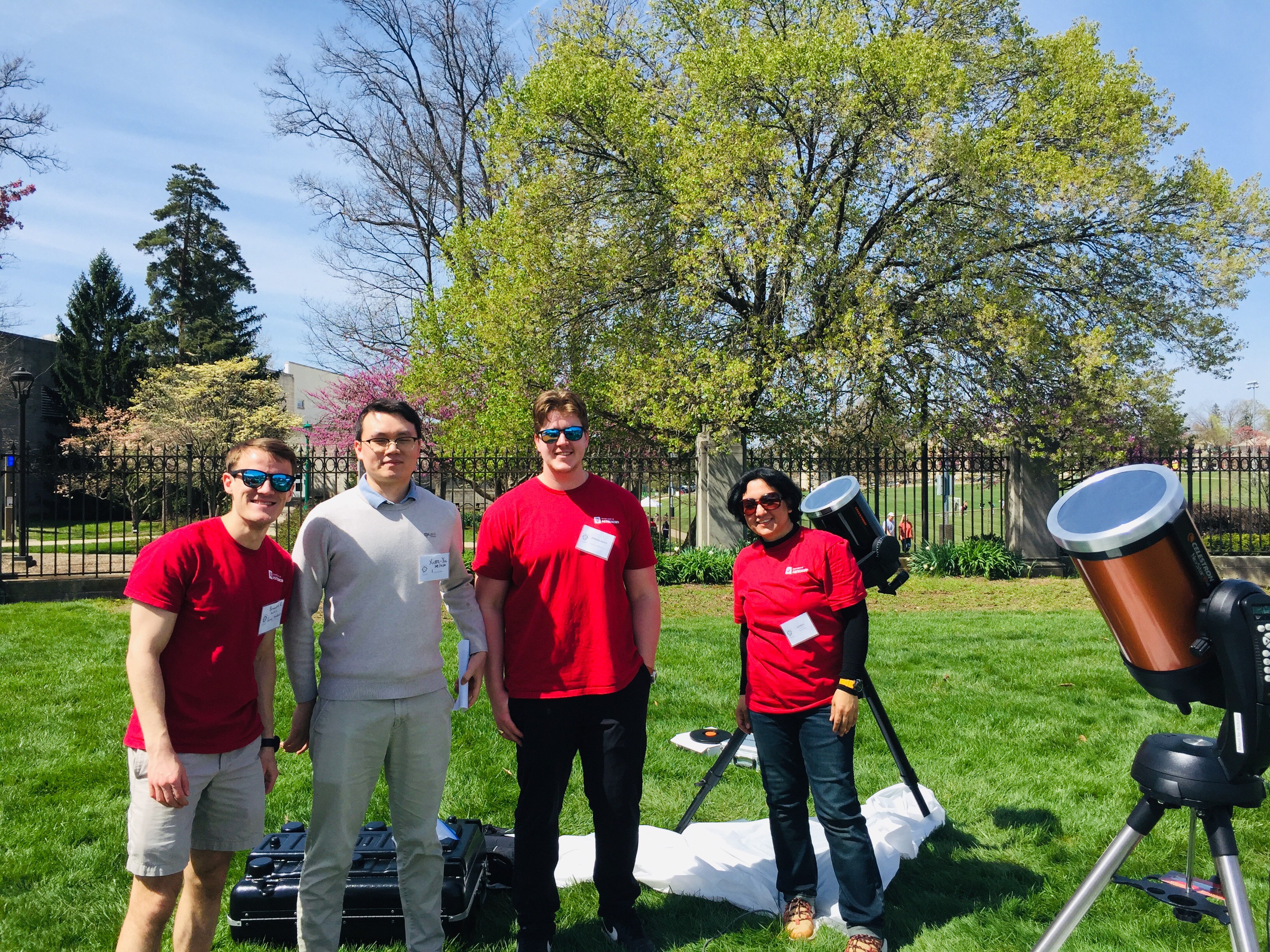PyIU: A Workshop Series on Python Essentials
Fall 2022-Present
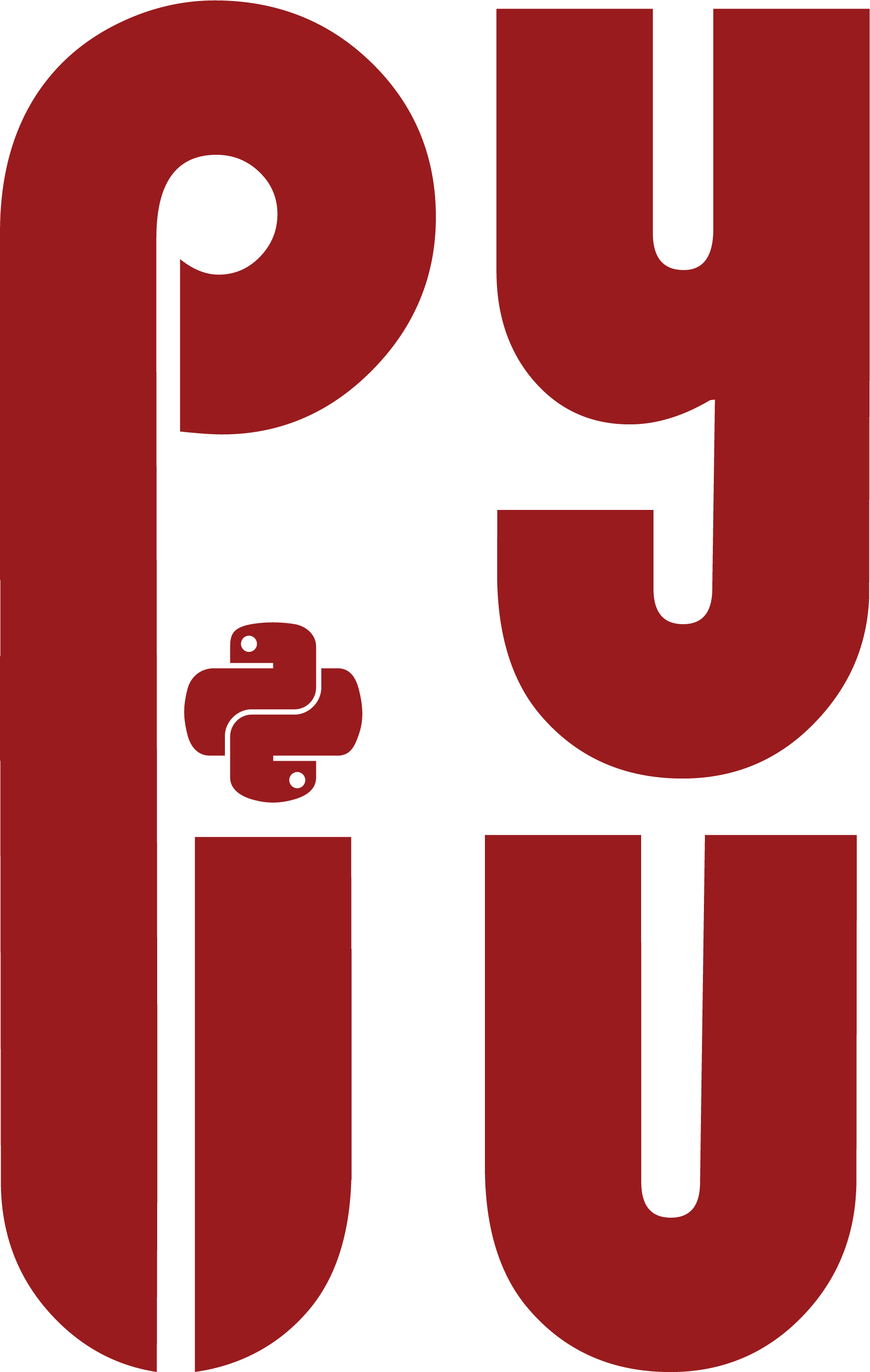
In fall of 2022, I organized the first-ever Python Crash Course session for astronomy undergraduates at Indiana University (IU). This single event blossomed into the recurring PyIU Python workshop series, which serves to spark interest in STEM and provide students with the programming skills necessary to begin and ultimately succeed in scientific research. PyIU consists of two in-person Python sessions, which are free and offered once each every semester. The first is a lecture-style Python Crash Course designed to cover the fundamentals of Python and programming, including variables, lists, logic, loops, functions, and plotting. The second session, usually held later in the semester, is an Advanced Python Workshop that covers more powerful Python tools, tricks, packages, and practical applications in research (past topics include Data Analysis with numpy & pandas, Data Fitting, Statistics, Advanced Plotting, and much more). Both sessions are entirely led by IU Astronomy graduate students and postdocs.
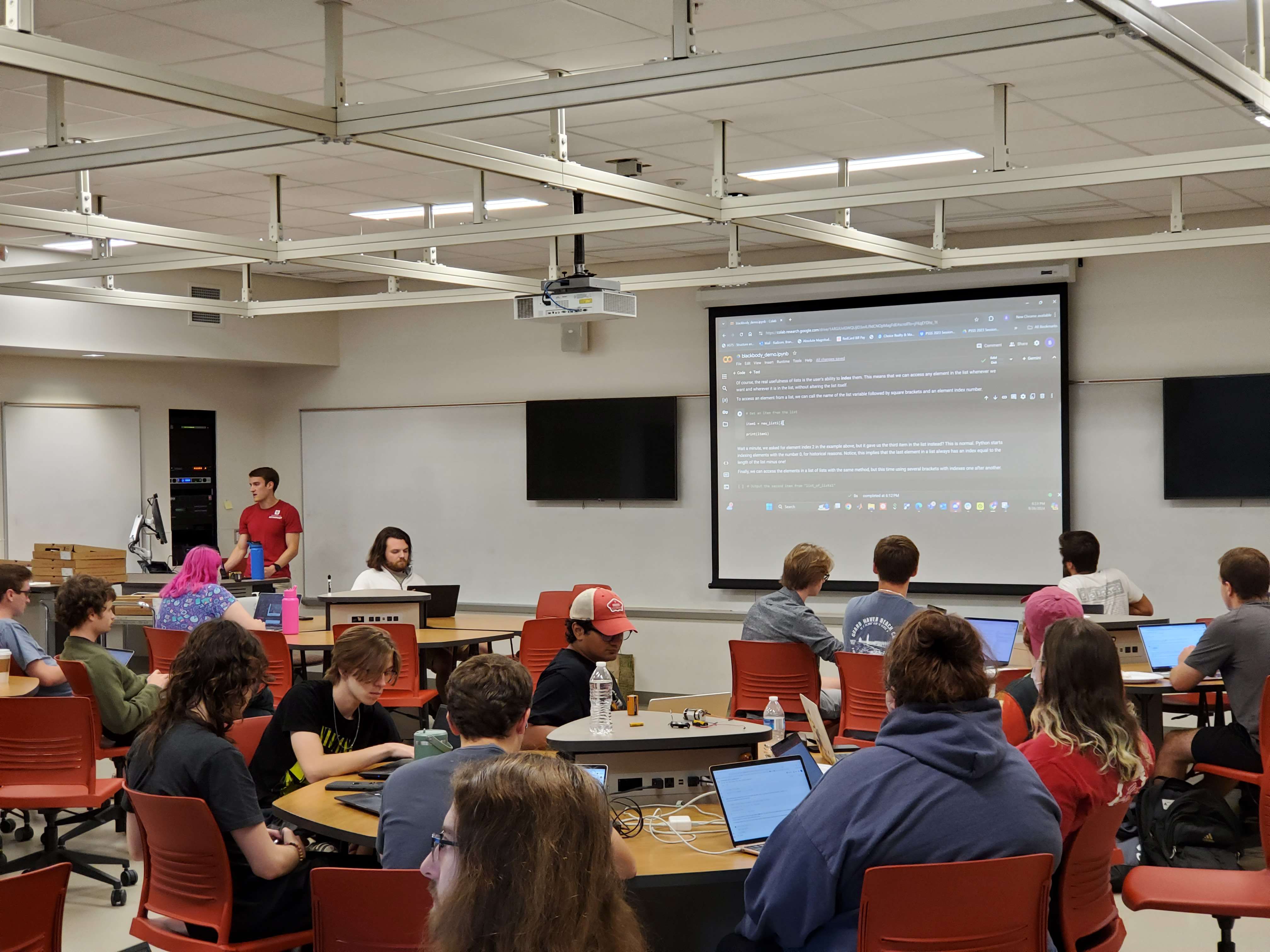
Since 2022, many original resources and code demos have been produced through PyIU, which is why we have transitioned to making all materials available in a public GitHub repository, which is accessible here: github.com/BrandonRadzom/pyiu.
Media:
- Fall 2024 Crash Course: https://astro.indiana.edu/news-events/news/2024-fall-python-crash-course-wrapup.html
- Spring 2023 Advanced Workshop: https://astro.indiana.edu/news-events/news/pythn-crash-course-2023.html
NASA Planetary Science Summer School (PSSS)
Summer 2023
I have a strong interest in mission science and support, and was fortunate to be selected for NASA's 2023 PSSS cohort. During this 11-week mission design training program, I joined a group of 18 graduate students and post-docs across various disciplines to develop a New-Frontiers (NF) class mission in response to the NF5 Announcement of Opportunity (AO). After familiarizing ourselves with the AO and the 2023 Planetary Science Decadal Survey, our team selected the enigmatic moon of Saturn, Titan, as the target for our orbiter. We received 10 weeks of remote training on mission formulation from NASA mentors and were simultaneously tasked with developing our concept, which included consultations with NASA's Team-X along the way. I became engrossed in the science case for our mission, which was titled Titan's Hydrocarbons: Uncovering New Dimensions of Evolutionary pRocesses (THUNDER), and I assumed the role of Science Objective Lead for one of its three science objectives.
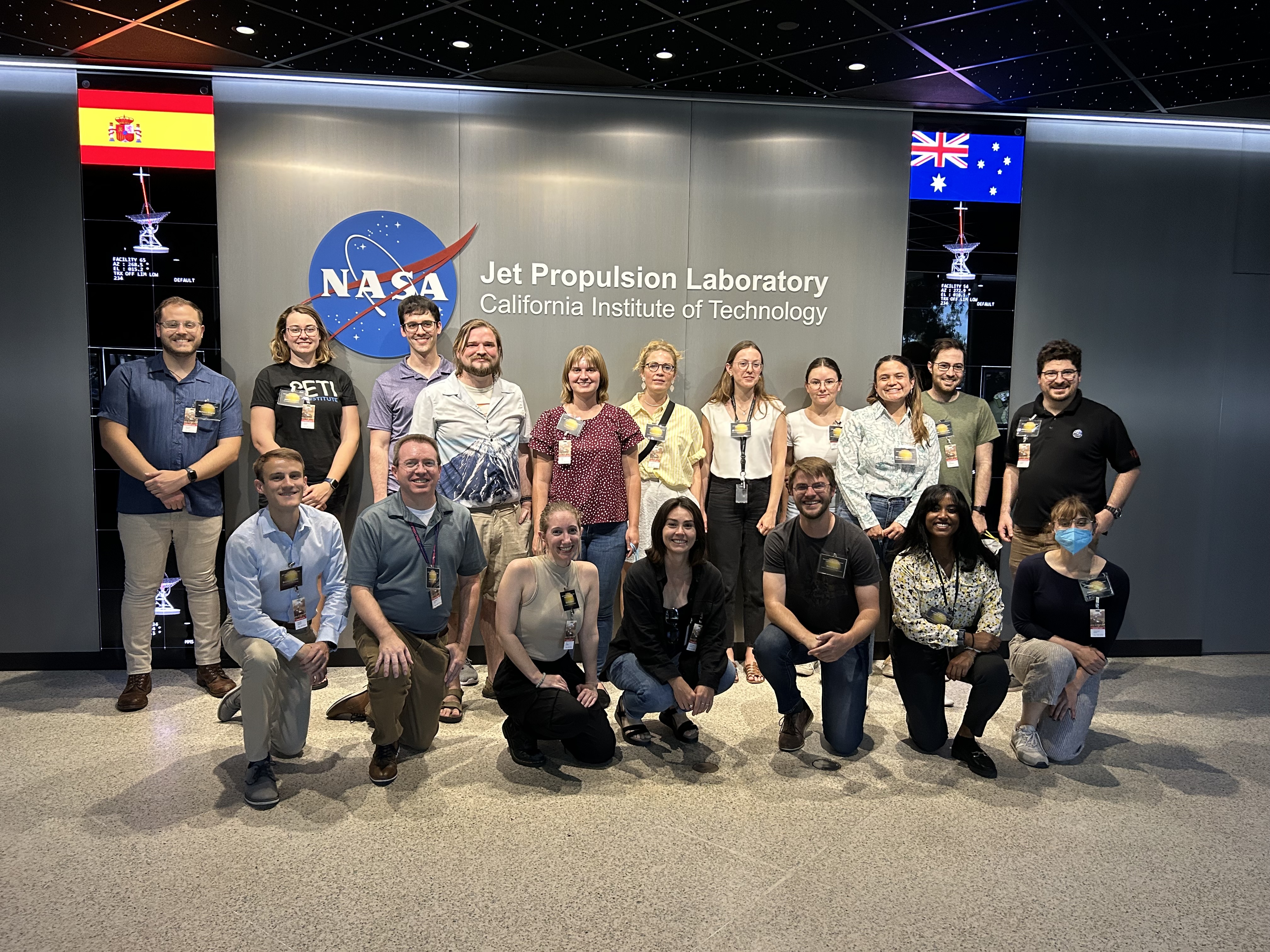
During the culminating week of the program, I also took on the role of Deputy PI and Science Subsystem Chair and worked alongside my cohort with NASA's Team-X in person at JPL to complete a Point Design Study for THUNDER and finalize the concept (for Phase A review). At the end of the week, our team underwernt a mock Portfolio Gate Review and presented THUNDER's design to a panel of NASA engineers, scientists, and executives. After completion of PSSS, my cohort and I wrote up our design in a manuscript that was recently accepted for publication in the Planetary Science Journal, hoping that some of its concepts may be useful for future mission designs and may fuel much-deserved scientific interest in Titan.
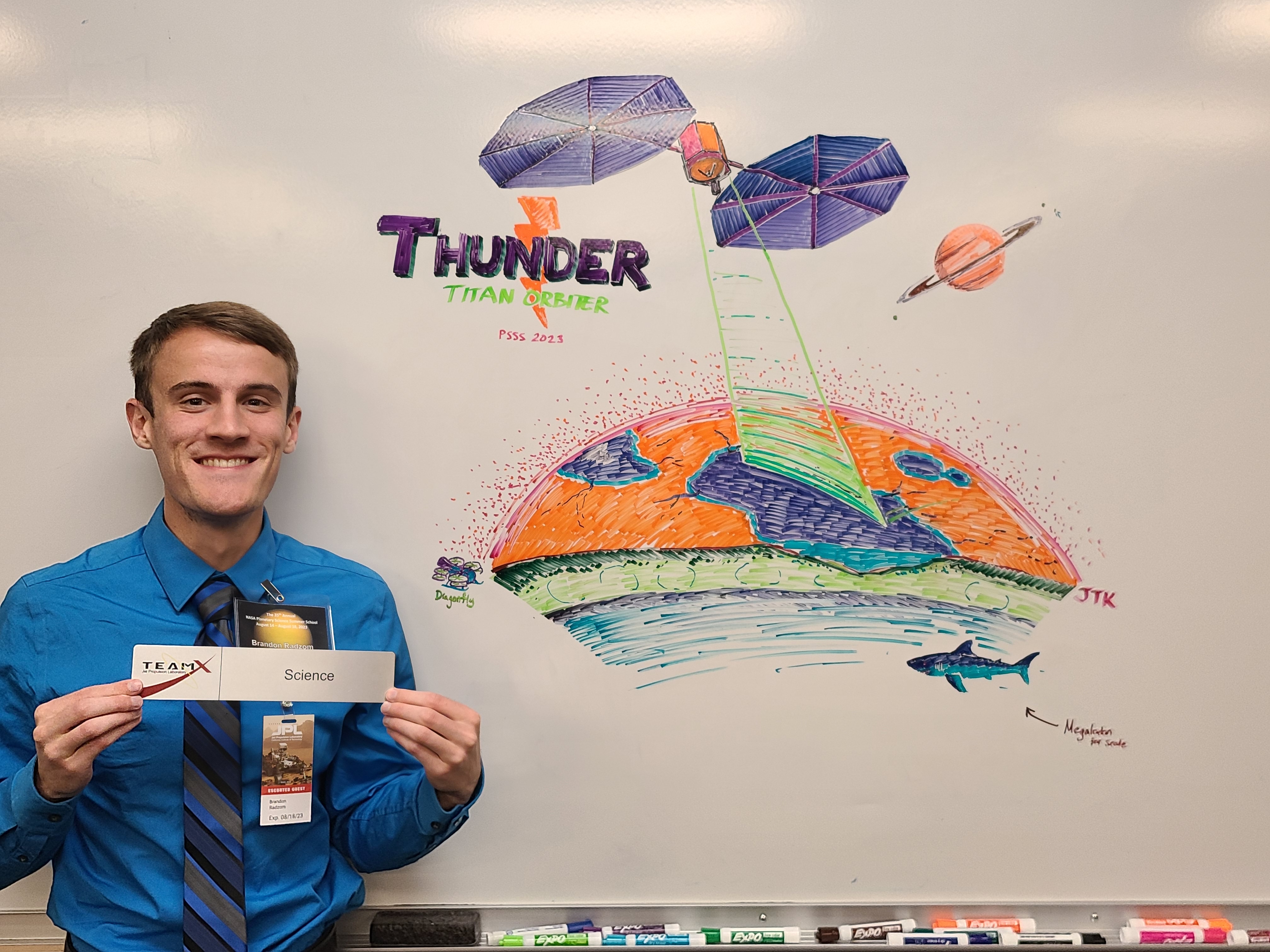
Media:
- IU College of Arts + Sciences News Article: https://news.iu.edu/college/live/news/35938-graduate-students-summer-experience-at-nasas-jet
- IU Astronomy News Article: https://astro.indiana.edu/news-events/news/radzom-brandon-nasa-2023.html
